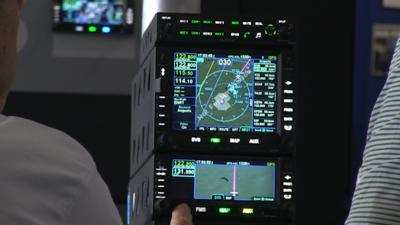Mon, Jul 08, 2019
Agency Assures Pilots That They Will Not Be Responsible For Circumstances Beyond Their Control
A document published in the Federal Register by the Department of Transportation establishes the FAA's policy on performance requirements for certain operations of aircraft with Automatic Dependent Surveillance-Broadcast (ADS-B) Out equipment in ADS-B airspace after January 1, 2020.

Under the circumstances identified in the policy, the FAA is providing assurance to operators that it will not consider degradation in Global Positioning System performance due to conditions outside the operator's control that results in an operation falling below ADS-B rule requirements to constitute non-compliance, provided the operator has exercised appropriate due diligence prior to conducting an operation.
According to the published document, there are circumstances outside of an operator's control that may result in a temporary degradation of GPS performance and an apparent violation Federal Aviation Regulations. Those circumstances are discussed in detail in the document linked below.
An operator may exercise due diligence in performing a preflight availability prediction for its intended route of flight but experience rerouting by ATC after obtaining an initial ATC route clearance, which may cause an unanticipated degradation of performance. Additionally, an operator may encounter actual GPS interference on its intended path of flight, which would affect the ability of an aircraft to meet the performance requirements of § 91.227. Lastly, an operator may not be able to complete a preflight availability prediction for its intended route of flight due to the FAA's SAPT being out of service.
As is explained in the document, the FAA recognizes that these situations are outside of the operator's control. Therefore, the FAA will not consider these events to constitute noncompliance with § 91.227 due to the circumstances discussed in this document to the extent such an application would impose a standard of conduct wholly outside the operator's control.
(Source: Federal Register. Image from file)
More News
Aero Linx: Model Aeronautical Association of Australia MAAA clubs are about fun flying, camaraderie and community. For over 75 years, the MAAA has been Australia’s largest fl>[...]
Touchdown Zone Lighting Two rows of transverse light bars located symmetrically about the runway centerline normally at 100 foot intervals. The basic system extends 3,000 feet alon>[...]
“Discovery and innovation are central to our mission at Virgin Galactic. We’re excited to build on our successful record of facilitating scientific experiments in subor>[...]
How To Get A Story On Aero-TV News/Feature Programming How do I submit a story idea or lead to Aero-TV? If you would like to submit a story idea or lead, please contact Jim Campbel>[...]
Student Pilot Reported That During Rotation, “All Of A Sudden The Back Of The Plane Kicked To The Right..." Analysis: The student pilot reported that during rotation, “>[...]
 ANN's Daily Aero-Linx (05.02.24)
ANN's Daily Aero-Linx (05.02.24) ANN's Daily Aero-Term (05.02.24): Touchdown Zone Lighting
ANN's Daily Aero-Term (05.02.24): Touchdown Zone Lighting Aero-News: Quote of the Day (05.02.24)
Aero-News: Quote of the Day (05.02.24) ANN FAQ: Contributing To Aero-TV
ANN FAQ: Contributing To Aero-TV NTSB Final Report: Cirrus Design Corp SR20
NTSB Final Report: Cirrus Design Corp SR20



